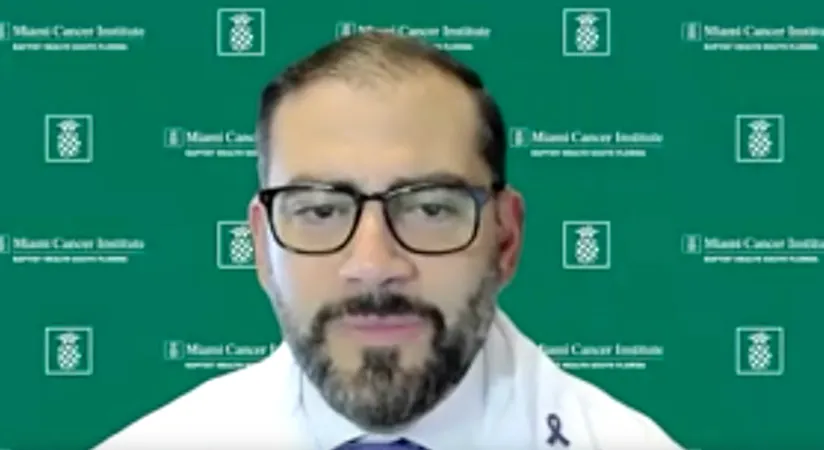
Groundbreaking Technique Could Transform Fertility Preservation in Pelvic Cancer Patients
2024-09-30
Historically, women diagnosed with uterine or colorectal cancer faced an agonizing decision: pursue critical treatment while accepting the risk of potential infertility caused by radiation. Traditional strategies have attempted to mitigate this risk by repositioning the ovaries to shield them from radiation exposure. However, the innovative approach of uterine transposition is reshaping the landscape of fertility preservation.
Dr. John Paul Diaz, a prominent figure in gynecologic oncology and director at Baptist Health’s Miami Cancer Institute, has spearheaded this pioneering technique. By tactically relocating the entire uterus beyond the reach of radiation, uterine transposition presents an unprecedented opportunity to safeguard its reproductive functions, a feat not achievable with current radiation therapies.
Dr. Diaz emphasized the transformative potential of this method, stating, "Uterine transposition could revolutionize pelvic cancer treatment, enabling patients to effectively combat their illness while still nurturing their dreams of family life." This dual benefit could alleviate a significant emotional burden for many women who might otherwise feel that they must choose between their health and future motherhood.
In a discussion highlighting the evolution of cancer treatment, Dr. Diaz remarked on past efforts to both treat cancer and retain fertility. “Previously, mobilizing the ovaries was our go-to method. But now, with uterine transposition, we can maintain complete uterine functionality, allowing these patients to receive pelvic radiation and retain the ability to carry a child post-treatment. No existing radiation method can guarantee the preservation of uterine function like this.”
This groundbreaking advancement is particularly promising for younger patients battling pelvic cancers. With the ability to survive cancer treatment without compromising fertility, these women may not only find hope in their health journeys but also in their personal lives.
The implications of these medical advancements cannot be overstated: as research continues and more patients benefit from procedures like uterine transposition, we may witness a future where successful cancer treatment and family planning no longer exist in opposition, but rather as complementary goals.
This leap forward signifies a new chapter in oncological care, illustrating the importance of personalized treatment strategies that prioritize both health and quality of life. As the medical community embraces such innovations, the potential for enhanced patient outcomes and restored familial aspirations comes into sharp focus.



 Brasil (PT)
Brasil (PT)
 Canada (EN)
Canada (EN)
 Chile (ES)
Chile (ES)
 España (ES)
España (ES)
 France (FR)
France (FR)
 Hong Kong (EN)
Hong Kong (EN)
 Italia (IT)
Italia (IT)
 日本 (JA)
日本 (JA)
 Magyarország (HU)
Magyarország (HU)
 Norge (NO)
Norge (NO)
 Polska (PL)
Polska (PL)
 Schweiz (DE)
Schweiz (DE)
 Singapore (EN)
Singapore (EN)
 Sverige (SV)
Sverige (SV)
 Suomi (FI)
Suomi (FI)
 Türkiye (TR)
Türkiye (TR)